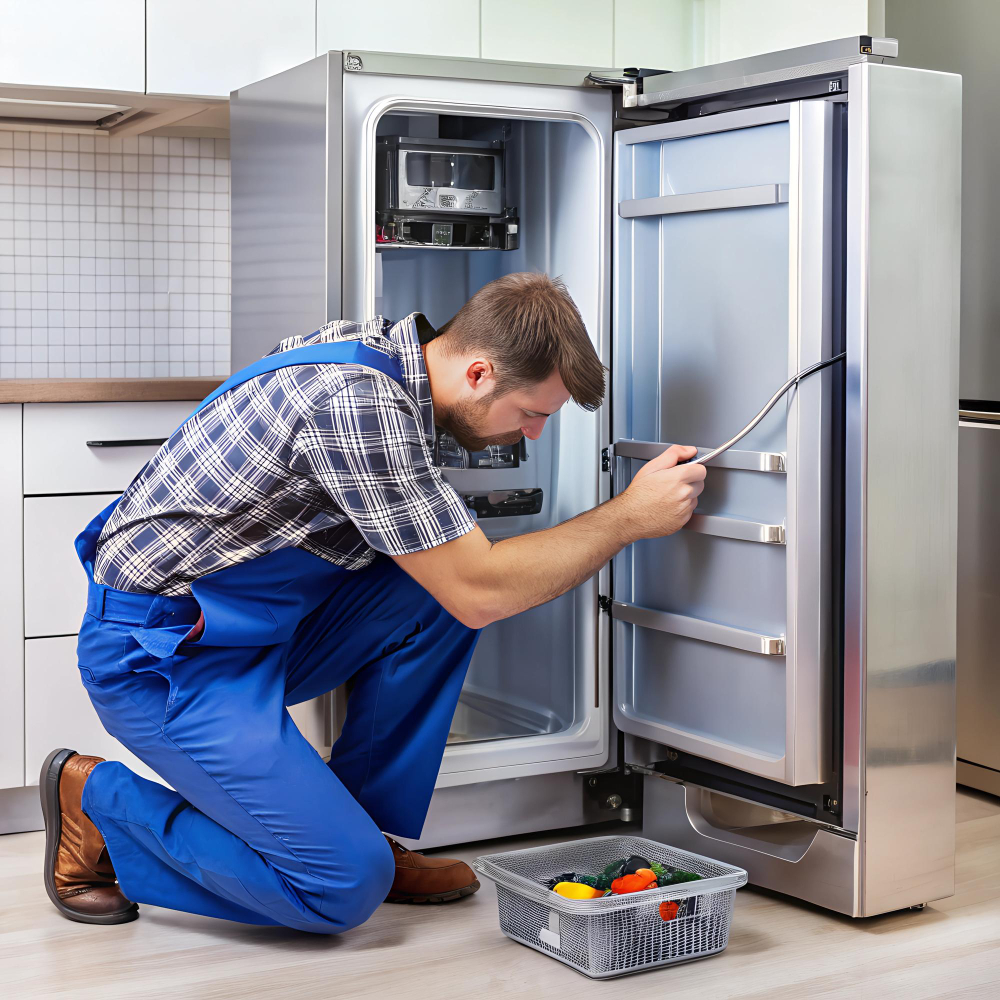
Has your refrigerator started leaking water, and now you're wondering what went wrong? Don't worry, you're not alone. A leaky fridge is one of the most common household appliance issues. This refrigerator repair guide will walk you through the most common causes of refrigerator leaks and show you how to stop water from leaking step by step. Whether dealing with a minor drip or a full-blown puddle, this guide will provide actionable tips to solve the problem.
One of the most common questions people ask when they see water pooling around their refrigerator is, "Why is my fridge leaking?" While it might seem like a major issue, the reality is that there are a few frequent and often easily fixable causes. Let's break down the main culprits behind fridge leaks and how to fix them:
One of the most frequent causes of a leaking fridge is a clogged defrost drain. The defrost drain carries excess moisture from your fridge to a drain pan, where it evaporates. When this drain becomes clogged with debris, food particles, or ice, it can cause water to back up and leak out of your refrigerator.
This simple fix should stop the leak. Regularly cleaning the defrost drain can prevent future clogs.
A faulty water filter is another common culprit in refrigerator leaks. If your fridge has a built-in water dispenser or ice maker, the water filter might need to be correctly installed or fixed, leading to leaks.
A properly functioning water filter prevents leaks and ensures that water and ice are clean and safe to consume.
Ice build-up in the freezer can leak water into the fridge compartment or onto the floor. This problem is often caused by a faulty door seal or a malfunctioning defrost system.
By ensuring the freezer is free from ice and your seals are working correctly, you can stop leaks and keep your fridge running efficiently.
If your refrigerator's door gaskets (seals) are worn out or damaged, they may not close properly, allowing warm air to enter the fridge. This can lead to condensation and water pooling at the bottom of the fridge or underneath it.
Regularly checking and replacing faulty door seals can prevent leaks and improve your refrigerator's energy efficiency.
Sometimes, excessive condensation inside your fridge can cause water to drip or pool at the bottom. This is often a sign that the fridge is set to a too-high temperature or overloaded with food items, restricting airflow.
Proper temperature management and airflow can help you avoid future condensation-related leaks.
Here are some frequently asked questions about refrigerator repair at home:
Many refrigerator leaks can be fixed with simple DIY steps, such as unclogging the defrost drain or replacing the door gaskets. However, if you suspect a more complex compressor or defrost system issue, it might be best to consult a professional refrigerator repair service.
To prevent blockages, cleaning the defrost drain at least once every six months is recommended.
Water pooling at the bottom of your fridge is often a sign of a clogged defrost drain, faulty door seals, or a temperature issue that causes excess condensation.
Conclusion
Stopping a refrigerator water leak doesn't have to be a stressful ordeal. By following these simple steps, you can troubleshoot and fix the most common causes of fridge leaks quickly and easily. Regular maintenance—like cleaning the defrost drain, checking door gaskets, and managing fridge temperatures—can prevent future issues and help your appliance run smoothly for years.
If you're in Surrey and need help with Refrigerator Repair Surrey or fridge repair, contact AMP Appliance. We are a local expert in all sorts of appliance repair. Therefore, whether you are suffering from major fridge leak or a minor one, we’ve got your back. Call at +1 (778) 834-7026 today.
As certified technicians, we repair all major appliance brands. Whether it’s Samsung, LG, Whirlpool, GE, or Bosch, we can fix your appliance.